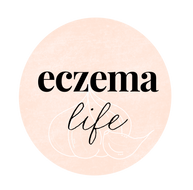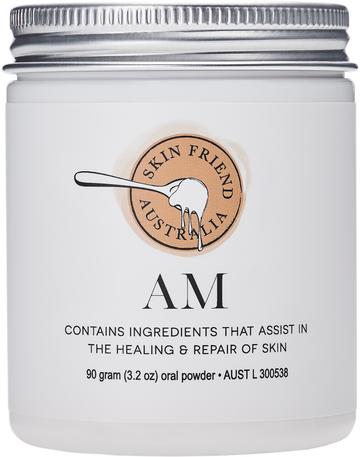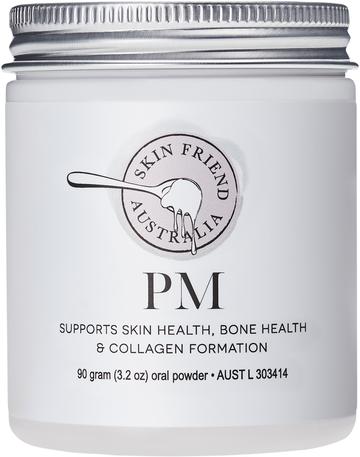Can eating raw eggs cause eczema?

Have you heard about egg white injury causing eczema? Scientists in the 1940s established raw egg whites could trigger eczematous dermatitis (now called eczema). However, today we have all but forgotten this research.
While not everyone's eczema is caused by raw eggs, this extract from The Eczema Diet is interesting food for thought.
The first research
In 1942 a diet experiment was conducted on healthy adults. They ate white rice, white flour products, sugar, fats, beef and raw egg whites. Within three weeks all the volunteers had itchy, scaly rashes that were diagnosed as eczematous dermatitis (now known as eczema). At seven weeks they had dull, greyish coloured skin, indicating poor blood supply to the outer parts of the body. Their eczema was not labelled genetic or treated with a topical drug.
They were given a biotin supplement and their symptoms completely reversed in less than five days. While most cases of eczema are not so easily reversed, biotin deficiency is something eczema sufferers should be aware of.
Egg White Injury
This diet experiment, conducted by scientists Sydenstricker and colleagues, demonstrate the need for biotin in the diet. They had induced ‘egg white injury’ a medical term used to describe the process whereby the consumption of avidin (a protein in raw egg whites) latches onto the B-group vitamin called biotin so your body can’t use it.
How it causes eczema/dermatitis
Biotin is required for delta-6-desaturase enzyme reactions in the body. When this enzyme malfunctions from lack of biotin, skin inflammation such as dermatitis is the first sign to appear.
Unfortunately, and despite the research that has been available for more than 60 years, raw egg whites are still present in many supermarket products including dips, whole-egg mayonnaise and coleslaw dressing.
Some health experts recommend protein shakes, containing fresh or powdered egg whites. We lick the bowl when making cakes or pancake mix containing raw egg. Traditional chocolate mousse and wedding cake icing contain raw egg whites. It may not be a coincidence that egg allergy is the number one allergy with which eczema sufferers present (and often they’re only allergic to raw eggs).
Eating raw egg whites on the rare occasion won’t cause eczema/dermatitis — egg white injury is achieved if you frequently eat dips, creamy dressings and/or whole-egg mayonnaise and other sources of raw egg whites. For example, if you have a raw egg (or raw egg white) added to your smoothie each day. It is also common in body-builders who eat raw eggs on a daily or frequent basis.
Biotin Deficiency Symptoms:
- dermatitis or eczema
- greyish pallor of the skin
- scaly lips
- nausea
- loss of appetite
- depression
- moodiness
- muscle pain
- raised cholesterol
- localised numbness
- facial rash and unusual facial fat distribution
Food Sources of Biotin
The following is a list of food sources of biotin with the content of biotin listed in micrograms:
- 100g (31⁄2oz) chicken liver*, 170mcg
- 1 cup cooked soybeans, 40mcg
- 12 oysters, 18mcg
- 1 egg (yolk), 15mcg
- 150g (5oz) grilled salmon, 14mcg
- 60g (21⁄3oz) rolled (porridge) oats, 12mcg
- 100g (31⁄2oz) canned tuna, 3mcg.
*Liver is the organ that stores and processes chemicals, hormones and pesticides so do not consume liver unless it is organic.
How biotin is made in the body
As the experiment above showed a deficiency in Biotin can cause eczema. Biotin is usually manufactured by friendly bacteria in healthy intestines, yet this may not occur in rash-prone individuals due to: genetics, high omega-6 intake, antibiotic use, a bout of diarrhoea or illness.
These medications can also lower biotin levels
Antibiotics -- Long-term antibiotic use may lower biotin levels by destroying the bacteria in the gut that produces biotin.
Antiseizure Medications or anticonvulsant medications, taken long-term, can lower biotin levels in the body. If you are taking these medication, ask your doctor before taking any supplements.
Can eczema sufferers get biotin from food?
Yes, if you have normal, healthy skin then you are probably absorbing and producing enough biotin for healthy skin. However, people with eczema often struggle to absorb nutrients from foods.
The biotin in food is usually attached to protein and is poorly absorbed by the body, so a biotin supplement is essential for eczema sufferers.
Eczema supplements with biotin
Unfortunately many store bought biotin supplements contain far more biotin than you need or should have. You only need about 15 to 30ug (micrograms) per day for good skin, not 3000ug! Many store bought supplements also have hidden additives, such as colours and flavourings which can worsen eczema.
At the Eczema Life Clinic, eczema patients are prescribed Skin Friend AM which has the right amount of biotin for skin health, plus it contains magnesium, zinc and vitamin B6. All four nutrients are needed for the delta-6-desaturase enzyme reaction to work. D-6-d is the enzyme reaction needed for the FADS2 gene to function properly. FADS2 converts omega-6 fats into anti-inflammatory substances called prostaglandins (PGE1). And this helps to prevent eczema!
Now we usually think that our gene mutations are not fixable but FADS2 is a simple one to improve. Just take biotin, magnesium, vitamin B6 and zinc in the correct amounts: RDAs are best so you don't cause deficiencies in other vitamins or minerals.
- Biotin 15ug for children; 30ug for teens and adults (100% RDI)
- Magnesium: 40mg for children and 80mg for teens and adults (and the rest obtained from food)
- Vitamin B6: 800ug for children and 1.6mg for teens and adults (100% RDI)
- Zinc: 4mg for children and 8mg for teens and adults (100% RDI)
So if you have eczema, skip eating raw eggs and give your skin the nutrients it needs to switch on genes, repair and renew.
This is an edited extract from The Eczema Diet by Karen Fischer. You can also find her most updated book The Eczema Detox, on the skin friend website.
Products
At Eczema Life, we recommend nutritionist Karen Fischer's low food chemical program (The Eczema Detox) along with additive-free supplements for skin health and wellbeing. Click on the images to view more details:
References & supporting research
Fischer, K., 2014, The Eczema Diet, Second edition, Exisle Publishing.
Roth, K.S., 1981, ‘Biotin in clinical medicine — a review’, American Journal of Clinical Nutrition, vol. 34, pp. 1967–74.
Baugh, C.M., Malone, J.H. and Butterworth, C.E., 1968, ‘Human biotin deficiency’, American Journal of Clinical Nutrition, vol. 21, pp. 173–182.
Sydenstricker, V.P., et al., 1942, ‘Observations on the “egg white injury” in man and its cure with a biotin concentrate’, Journal of the American Medical Association, vol. 118, no. 14, pp. 1199–200.
Mock DM, 2002, Quirk JG, Mock NI. Marginal biotin deficiency during normal pregnancy. American Journal of Clinical Nutrition; vol. 75(2):295-299.
Said HM. 2002, Biotin: the forgotten vitamin, American Journal of Clinical Nutrition, Vol 75(2)179-180.
Singer GM, Geohas J. The effect of chromium picolinate and biotin supplementation on glycemic control in poorly controlled patients with type 2 diabetes mellitus: a placebo-controlled, double-blinded, randomized trial. Diabetes Technol Ther. 2006 Dec;8(6):636-43.
Food and Nutrition Board, Institute of Medicine. Biotin. Dietary Reference Intakes: Thiamin, Riboflavin, Niacin, Vitamin B6, Vitamin B12, Pantothenic Acid, Biotin, and Choline. Washington, D.C.: National Academy Press; 1998:374-389




